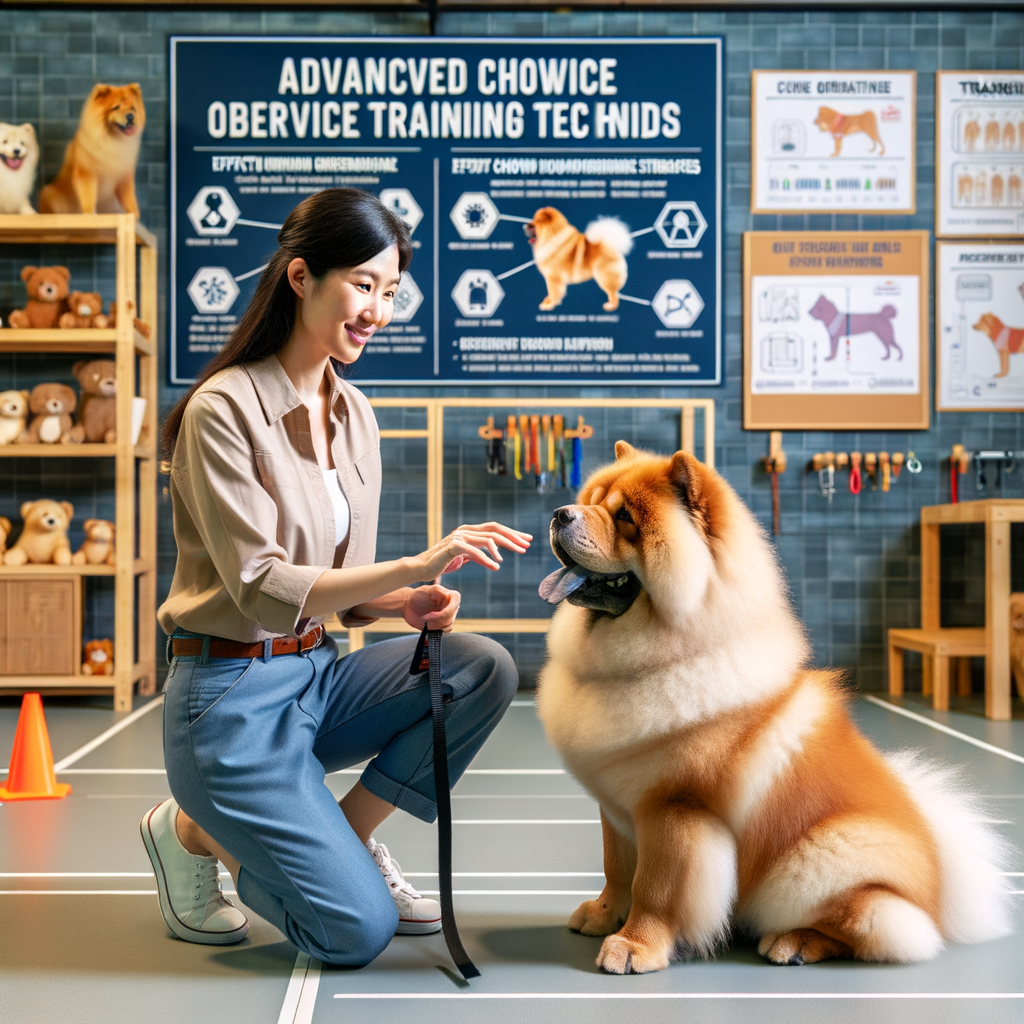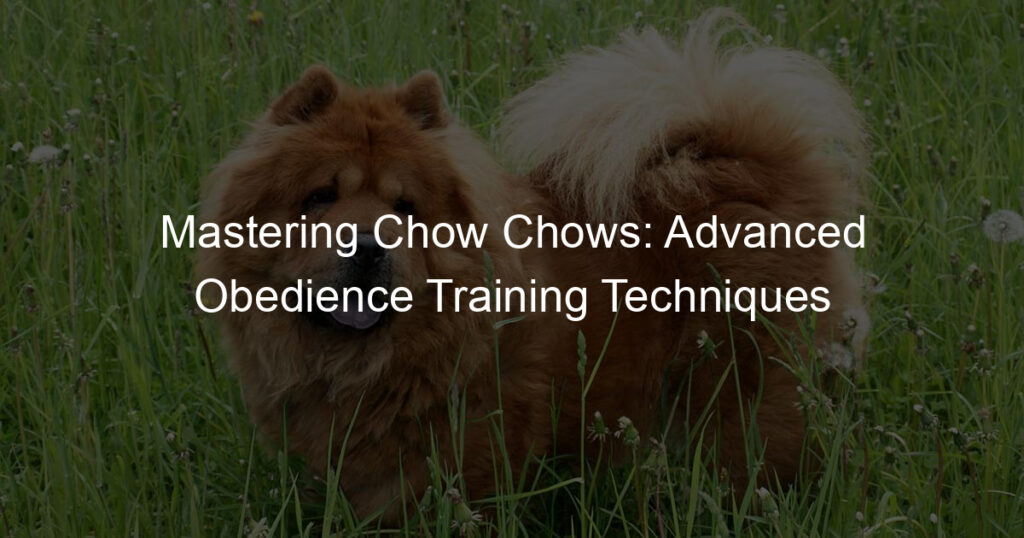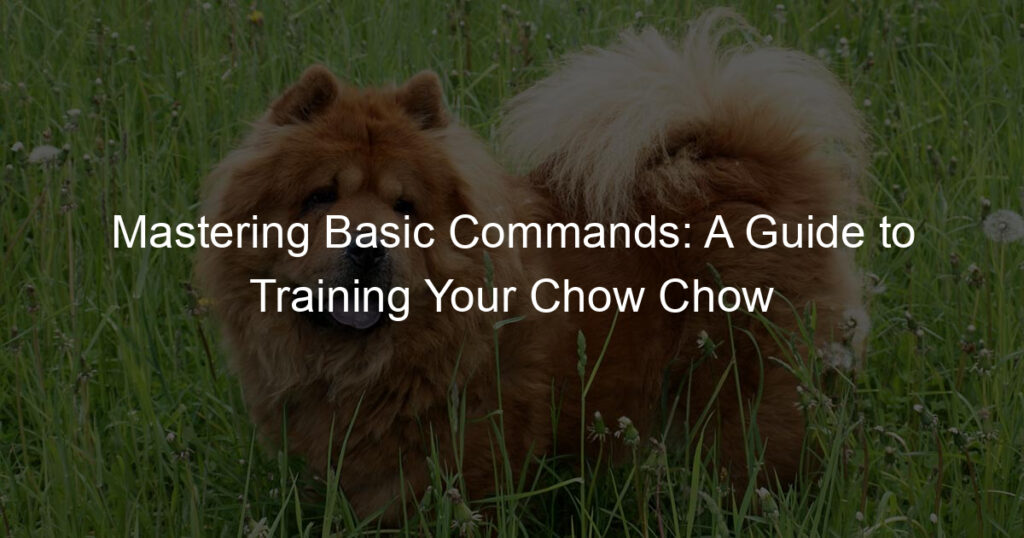
Introduction to Advanced Obedience Training for Dogs
Training your dog is a crucial part of pet ownership. It’s not just about teaching them tricks or commands, but also about building a strong bond and understanding between you and your furry friend. In this section, we will delve into the world of advanced obedience training for dogs, its importance, and the benefits it offers.
Obedience training is more than just teaching your dog to sit or stay. It’s about teaching them how to behave in different situations, and how to interact with people and other animals. It’s a way to ensure that your dog is well-behaved, safe, and happy.
Without proper training, dogs can develop behavioral problems, such as aggression or fear. These issues can make it difficult for them to interact with others and can lead to a stressful life for both you and your pet. On the other hand, a well-trained dog is a joy to be around. They are confident, secure, and able to handle different situations with ease.
Advanced obedience training takes basic training to the next level. It involves teaching your dog more complex commands and behaviors, such as walking off-leash, behaving properly in public places, or even performing tasks that can help people with disabilities.
The benefits of advanced obedience training are numerous. Firstly, it provides mental stimulation for your dog. Just like humans, dogs need mental exercise to stay sharp and happy. Advanced training challenges them and keeps their minds active.
Secondly, advanced training can help strengthen the bond between you and your dog. Working together on complex tasks requires trust and understanding, which can bring you closer together.
Lastly, advanced obedience training can make your life easier. A well-trained dog is easier to manage, less likely to get into trouble, and more enjoyable to be around. Whether you’re at home, in the park, or out in public, you can trust that your dog will behave appropriately.
In the following sections, we will explore specific training techniques and strategies for Chow Chows, a breed known for its unique temperament and behavior. Stay tuned to learn how to master your Chow Chow’s obedience.
Understanding Chow Chows: Behavior and Temperament
Chow Chows are a unique breed of dogs, known for their lion-like appearance and blue-black tongues. However, their behavior and temperament are what truly set them apart. In this section, we will delve into the characteristics of Chow Chows and understand their behavior.
- Characteristics of Chow Chows
Chow Chows are medium-sized dogs, with a sturdy build and a distinctive ruff of fur around their necks. They are known for their aloof and independent nature. Unlike other breeds, Chow Chows are not overly affectionate or playful. They are, however, extremely loyal and protective of their families.
Chow Chows have a keen sense of territory and can be quite reserved with strangers. They are not naturally aggressive but can act out if they feel their space is being invaded. They are intelligent and can be stubborn at times, which can make training a bit challenging.
Despite their somewhat standoffish nature, Chow Chows are known to form deep bonds with their families. They are quiet and well-mannered, making them excellent house dogs. However, they do require regular exercise to keep them healthy and happy.
- Understanding Chow Chow behavior
Understanding the behavior of Chow Chows requires acknowledging their independent nature. They are not the type of dogs that constantly seek attention or affection. Instead, they prefer to have their own space and are quite content being alone.
Chow Chows are not naturally aggressive, but they can become so if they feel threatened. They are very protective of their families and their territory. If they perceive a threat, they will not hesitate to defend themselves or their loved ones.
Training a Chow Chow requires patience and consistency. They are intelligent and quick to learn, but their stubbornness can sometimes get in the way. Positive reinforcement works best with this breed, as they do not respond well to harsh training methods.
Despite their aloof demeanor, Chow Chows are capable of forming deep and lasting bonds with their families. They are loyal and protective, making them excellent companions for those who understand and respect their unique temperament.
In conclusion, Chow Chows are a unique breed with a distinct behavior and temperament. They are independent, loyal, and protective, making them excellent companions for the right owners. Understanding their behavior and temperament is key to forming a strong and lasting bond with these beautiful dogs.
Chow Chow Training Techniques
Training your Chow Chow can be a rewarding experience when approached with the right techniques. This breed is known for its intelligence and stubbornness, which can make training a bit challenging. However, with patience, consistency, and the right strategies, you can successfully train your Chow Chow.
Basic Chow Chow Obedience Strategies
Let’s explore some fundamental obedience strategies that can help you in training your Chow Chow.
-
- Establishing leadership
Chow Chows are naturally dominant dogs. They need a firm and confident leader. It’s important to establish your leadership from the start. This doesn’t mean being harsh or aggressive. Instead, it’s about setting boundaries and rules, and consistently enforcing them. For example, you can control when your dog eats, plays, or goes for a walk. This helps your Chow Chow understand that you are in charge.
-
- Consistency in commands
Consistency is key when training Chow Chows. Use the same commands for the same actions every time. This helps your dog understand what you expect from them. For instance, if you use the command “sit” today, don’t change it to “down” tomorrow. This can confuse your dog and slow down the training process.
-
- Positive reinforcement
Positive reinforcement is one of the most effective training methods for Chow Chows. This involves rewarding your dog for good behavior. The reward can be a treat, praise, or a favorite toy. For example, if your Chow Chow sits when you command them to, immediately reward them. This helps them associate the command with the reward, encouraging them to repeat the behavior.
In conclusion, training a Chow Chow requires patience, consistency, and positive reinforcement. Remember, every dog is unique and what works for one may not work for another. It’s important to understand your Chow Chow’s personality and adjust your training methods accordingly.
Advanced Dog Training Methods for Chow Chows
When it comes to training your Chow Chow, there are several advanced methods that can be used to ensure your pet is well-behaved and obedient. These methods are designed to build on the basic obedience strategies, providing a more comprehensive training approach.
-
- Advanced Command Training
Advanced command training involves teaching your Chow Chow more complex commands beyond the basic “sit”, “stay”, and “come”. This could include commands like “heel”, “fetch”, or “leave it”. The key to successful advanced command training is consistency and repetition. It’s important to practice these commands regularly and reward your Chow Chow for correctly following them.
-
- Leash Training
Leash training is another important aspect of advanced dog training. This involves teaching your Chow Chow to walk nicely on a leash without pulling or tugging. It’s important to start leash training in a quiet, distraction-free environment before gradually introducing more distractions. Remember, patience is key when it comes to leash training.
-
- Socialization Techniques
Finally, socialization techniques are crucial for ensuring your Chow Chow is comfortable around other dogs and people. This involves gradually exposing your pet to a variety of different environments, people, and animals. It’s important to always ensure these experiences are positive for your Chow Chow, as negative experiences can lead to fear or aggression.
In conclusion, advanced dog training methods for Chow Chows involve a combination of advanced command training, leash training, and socialization techniques. By implementing these strategies, you can ensure your Chow Chow is well-behaved, obedient, and comfortable in a variety of situations.
| Training Method | Description |
|---|---|
| Advanced Command Training | Teaching complex commands beyond the basic ones |
| Leash Training | Teaching your Chow Chow to walk nicely on a leash |
| Socialization Techniques | Exposing your pet to different environments, people, and animals |
Chow Chow Behavior Training
In this section, we will delve into the behavior training of Chow Chows. This breed is known for its unique personality traits, which can sometimes pose challenges for owners. However, with the right approach, you can successfully train your Chow Chow to be a well-behaved pet.
Addressing Common Behavioral Issues
Chow Chows, like any other breed, can exhibit certain behavioral issues. These are often a result of their inherent traits, upbringing, or environment. Let’s discuss some of the most common issues and how to address them:
- Aggression: Chow Chows can sometimes display aggressive behavior, especially towards strangers or other dogs. It is important to socialize your Chow Chow from a young age to help them become comfortable around different people and animals. Regular exposure to various situations can help reduce their aggressive tendencies.
- Stubbornness: Chow Chows are known for their independent and stubborn nature. This can make training a bit challenging. However, patience and consistency can go a long way. Use positive reinforcement techniques to reward good behavior and make training sessions enjoyable for your pet.
- Separation anxiety: This breed can develop separation anxiety if left alone for long periods. To help your Chow Chow cope with this, gradually increase the time they spend alone. Also, provide them with toys and activities to keep them occupied when you’re not around.
Remember, every Chow Chow is unique and may not exhibit all these behaviors. It’s crucial to understand your pet’s individual personality and tailor your training approach accordingly.
Effective Obedience Training for Chow Chows
Training your Chow Chow can be a rewarding experience for both you and your pet. However, it requires a certain level of understanding and a few key strategies to be successful. Let’s explore some of these strategies.
-
- Using rewards effectively
Chow Chows, like most dogs, respond well to positive reinforcement. This means rewarding them when they exhibit good behavior. Treats, praises, or a favorite toy can all serve as effective rewards. However, it’s important to give the reward immediately after the desired behavior, so your Chow Chow associates the reward with the action. For instance, if your Chow Chow sits when commanded, immediately give them a treat or praise. This will reinforce the behavior and encourage them to repeat it.
-
- Importance of patience and consistency
Patience and consistency are key when training any dog breed, and Chow Chows are no exception. Training takes time and repetition. It’s crucial to be patient and consistent with your commands and rewards. If you’re inconsistent, your Chow Chow might get confused and not understand what you want from them. Remember, it’s not about how quickly they can learn a command, but how well they can perform it consistently.
-
- Dealing with setbacks in training
Setbacks in training are normal and should be expected. Your Chow Chow might forget commands or behave inappropriately. When this happens, it’s important not to get frustrated. Instead, take a step back, reassess your training approach, and try again. Remember, every setback is an opportunity to learn and improve. It’s all part of the training process.
In conclusion, effective obedience training for Chow Chows involves using rewards effectively, being patient and consistent, and dealing with setbacks in a positive manner. With these strategies, you’ll be well on your way to having a well-behaved Chow Chow.
| Training Strategy | Description |
|---|---|
| Using rewards effectively | Use positive reinforcement such as treats, praises, or toys immediately after the desired behavior. |
| Patience and consistency | Be patient and consistent with your commands and rewards. Training takes time and repetition. |
| Dealing with setbacks | Expect setbacks and deal with them positively. Every setback is an opportunity to learn and improve. |
Advanced Pet Obedience Strategies
Training your pet, especially a Chow Chow, can be a challenging task. However, with the right strategies, it can be a rewarding experience for both you and your pet. Here are some advanced obedience strategies that have proven to be effective for Chow Chows.
Training Strategies for Chow Chows
Chow Chows are known for their stubborn and independent nature, which can make training a bit challenging. However, with patience, consistency, and the right training strategies, you can successfully train your Chow Chow. Here are some strategies that you can try:
-
- Clicker Training
Clicker training is a positive reinforcement method that uses a clicker, a small handheld device that makes a distinct ‘click’ sound. The clicker is used to mark the exact moment your Chow Chow performs a desired behavior. This method is effective because it provides immediate feedback, helping your Chow Chow understand exactly what behavior is being rewarded.
-
- Crate Training
Crate training involves teaching your Chow Chow to see the crate as its ‘home’ or safe place. This method can be useful for house training, as dogs naturally avoid soiling their living space. It can also help reduce separation anxiety and destructive behavior when you’re not home. Remember, the crate should never be used as a punishment.
-
- Off-Leash Training
Off-leash training is a more advanced obedience strategy that involves teaching your Chow Chow to follow commands even when not on a leash. This training can be challenging, especially for Chow Chows, due to their independent nature. However, with patience and consistency, your Chow Chow can learn to respond to commands even without the physical control of a leash.
Remember, every Chow Chow is unique and what works for one may not work for another. It’s important to be patient and consistent in your training efforts. With time and perseverance, your Chow Chow can become a well-behaved and obedient pet.
Chow Chow Training Tips
Training a Chow Chow can be a rewarding experience, but it requires patience, understanding, and the right strategies. Here are some essential tips to help you train your Chow Chow effectively:
-
- Understanding your Chow Chow’s needs
Chow Chows are known for their independent and sometimes stubborn nature. They are intelligent dogs that require mental stimulation as much as physical exercise. Understanding their needs is crucial for effective training. For example, Chow Chows often respond well to routines and consistency. They also need a balanced diet and regular vet check-ups to ensure their physical health, which can impact their behavior and training progress.
-
- Creating a positive training environment
Chow Chows respond best to positive reinforcement. This means rewarding good behavior with treats, praise, or playtime. Avoid harsh punishment as it can lead to fear and aggression. Instead, use a firm but gentle approach to correct unwanted behavior. Make sure the training environment is calm and free from distractions. This will help your Chow Chow focus on the task at hand and learn more effectively.
-
- Utilizing professional resources
Don’t hesitate to seek help from professional dog trainers or behaviorists if you’re having trouble training your Chow Chow. They can provide valuable insights and techniques tailored to your dog’s specific needs and temperament. Additionally, there are numerous books, online courses, and videos available that offer expert advice on Chow Chow training.
In conclusion, training a Chow Chow requires understanding their unique needs, creating a positive training environment, and utilizing professional resources when needed. With patience and consistency, you can help your Chow Chow become a well-behaved and happy member of your family.
Conclusion: Mastering Your Chow Chow’s Obedience
In this article, we’ve journeyed through the fascinating world of Chow Chow obedience training. We’ve delved into understanding their unique behavior and temperament, explored various training techniques, and even touched on advanced pet obedience strategies. Now, let’s wrap up with a recap and a reminder of the importance of continued training and reinforcement.
- Recap of advanced obedience training techniques
Advanced obedience training techniques for your Chow Chow include positive reinforcement, clicker training, and the use of commands. Positive reinforcement involves rewarding your pet for good behavior, encouraging them to repeat it. Clicker training is a method where you use a clicker to mark the exact moment your dog performs the desired behavior, followed by a treat. Commands like ‘sit’, ‘stay’, ‘come’, and ‘leave it’ are essential for your Chow Chow’s obedience.
Remember, patience and consistency are key. Training should be a fun and rewarding experience for both you and your Chow Chow. It’s not about domination, but about building a strong, trusting relationship with your pet.
- Importance of continued training and reinforcement
Training your Chow Chow is not a one-time event. It’s a continuous process that requires time, effort, and patience. Regular training sessions help to reinforce learned behaviors, keep your dog mentally stimulated, and strengthen your bond.
Continued reinforcement is crucial for maintaining your Chow Chow’s obedience. This means consistently rewarding good behavior and correcting undesirable ones. Remember, your Chow Chow is always learning, so make every interaction a learning opportunity.
In conclusion, mastering your Chow Chow’s obedience is a rewarding journey that requires commitment and consistency. With the right techniques and a lot of love, your Chow Chow will become a well-behaved and obedient companion. Happy training!














